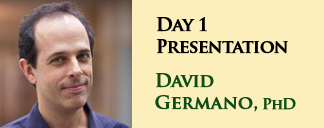David Germano, PhD, Director, Center for Contemplative Sciences, Univ. of Virginia.
We will explore Tibetan Buddhist meditation in the complexity of its forms in classical sources, the complexity of its relationship to diverse literary sources ranging from manuals to narratives, and the complexity of the role of contexts when understanding it. In doing so, we will take particular care to explore the divergences between humanistic and scientific perspectives on Buddhist meditation, and their possible consilience when we deeply explore their respective orientations towards the contexts of contemplation and their potentially constitutive character. One of the most widespread forms of literature on contemplation is procedural instructions, and yet it is quite clear that such accounts are deeply inadequate as a source for understanding the practices in question. What is the full range of contexts applicable to Tibetan Buddhist contemplative practices and experiences, how do we discern them, and how are they potentially centrally constitutive of the practices’ central character and dynamics? In doing so, we will explore how changing roles of nomothetic and idiographic approaches in the sciences and humanities revolve around this issue of context, and may yet point to a more fruitful convergence or at least richer exchanges on the immediate horizons.
360 Video Login required
